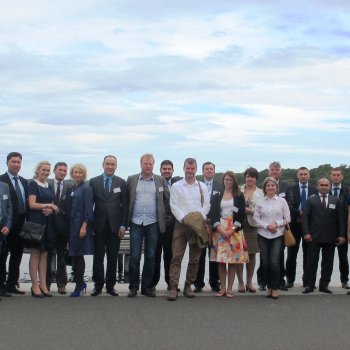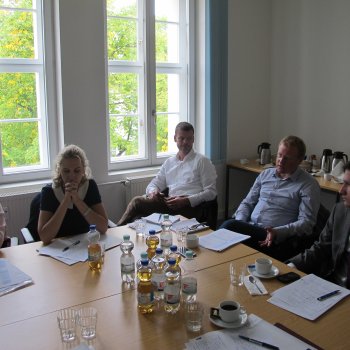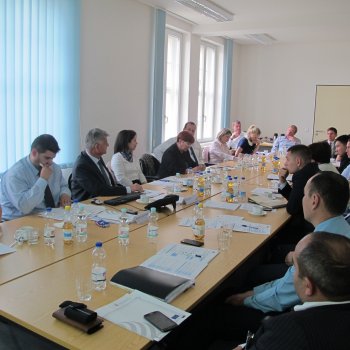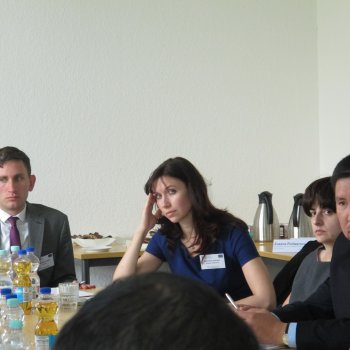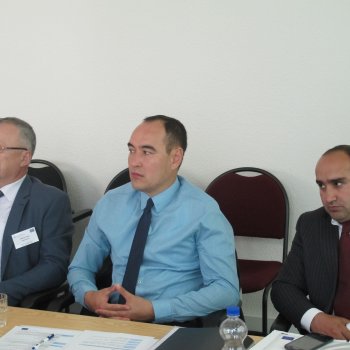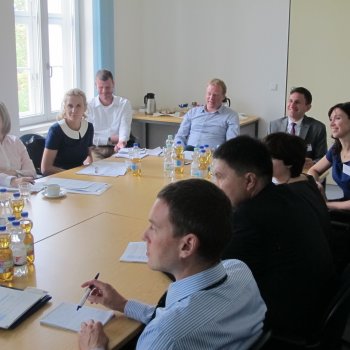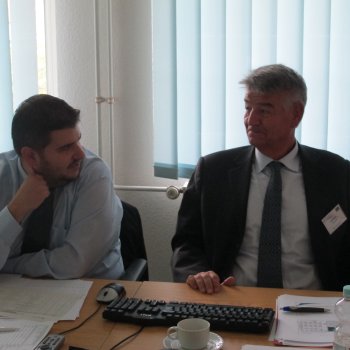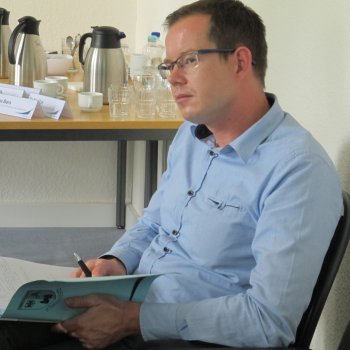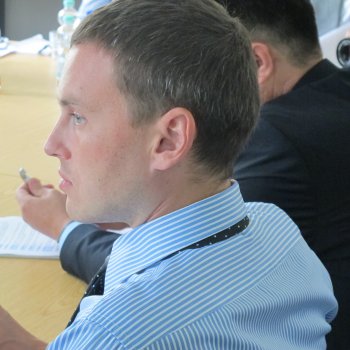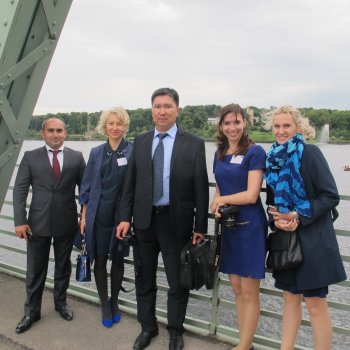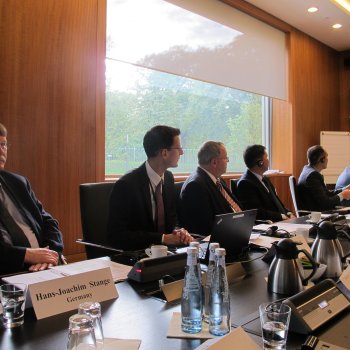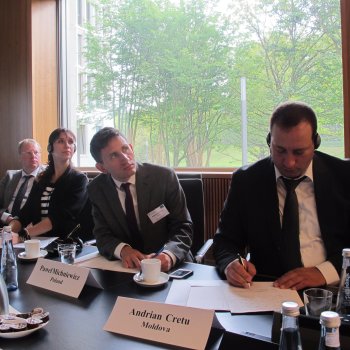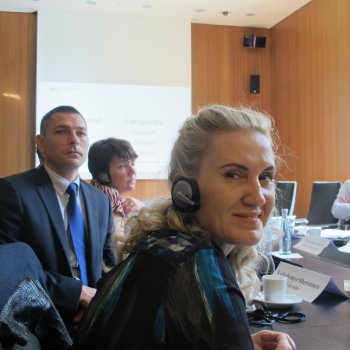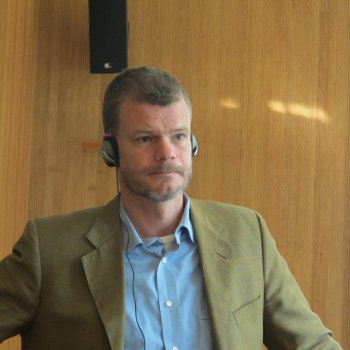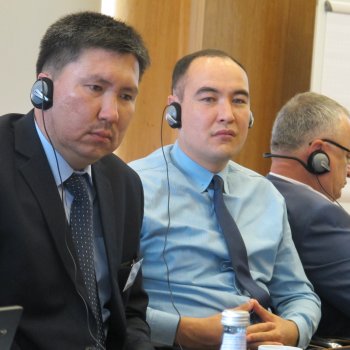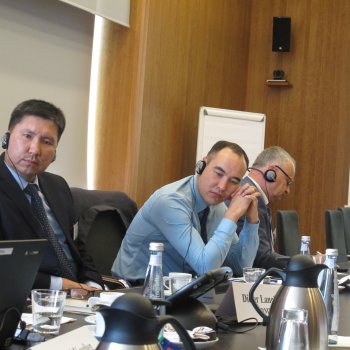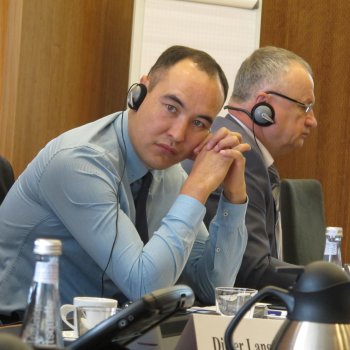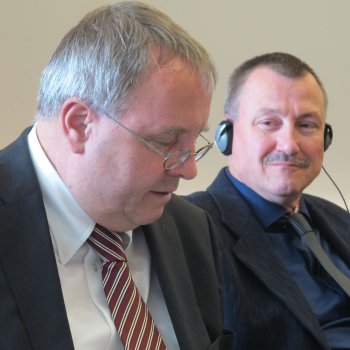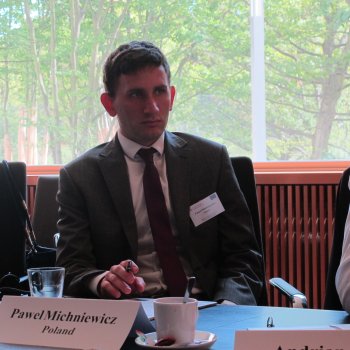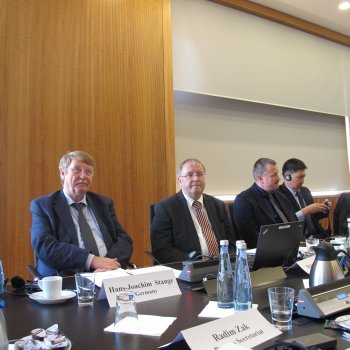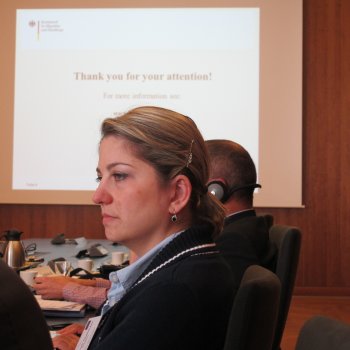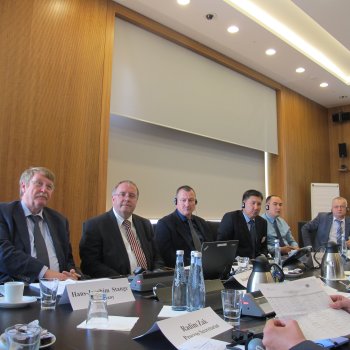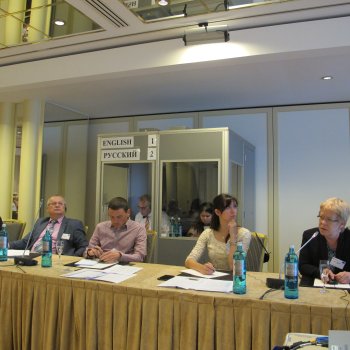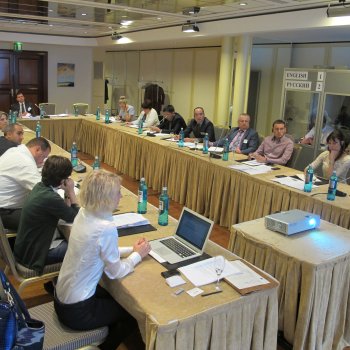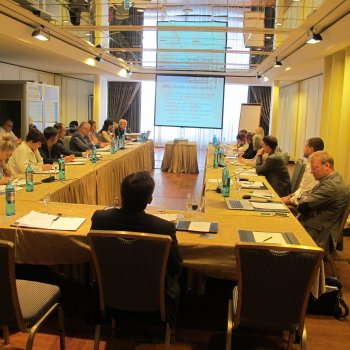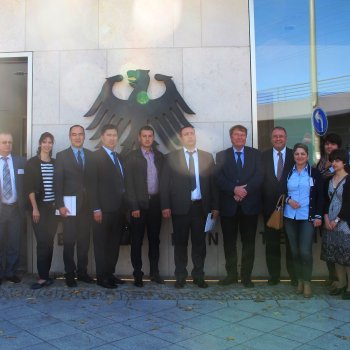Events
Objective 2: Study visit to Germany
Wednesday, 16 September 2015 - Friday, 18 September 2015
Location: Berlin and Potsdam, Germany
Contact: Anna Bara
Description
The Study visit to Germany, organised in the framework of the Objective 2 – Knowledge base, took place in Berlin on 16-18 of September 2015, gathering together participants from Armenia, Azerbaijan, Belarus, Czech Republic, Germany, Georgia, Kazakhstan, Kyrgyzstan, Moldova, Poland, Russia, Sweden, Ukraine, Uzbekistan, IOM, and the Institute for European Politics, which were accompanied by the Prague Process Secretariat.
The programme envisaged a visit to the Joint Analysis and Strategy Centre for Illegal Migration (GASIM) in Potsdam, a day at the premises of the German Federal Ministry of Interior, and presentations and discussions of various experiences in the spheres of data collection, migration management and inter-agency cooperation.
During the visit to the GASiM participants have learnt about Centre’s mandate, structure and activities, had a chance to get acquainted with data collection & application approaches, which exist on Federal and “Laender” levels in Germany, as well as with the most recent data on irregular migration, and best practices and key challenges in migration management in Germany.
The second day of the meeting, which took place at the German Federal Ministry of the Interior, uncovered some of the most relevant migration topics: legal responses to regular and irregular migration, and challenges & opportunities of the current migration situation. As a country, that was the first to pilot Migration Profile Light (MPL), Germany also shared its’ experience with drafting and endorsement of the MPL.
Finally, the third day was devoted to the presentations of Poland and its’ experience in inter-agency cooperation in migration management, of Sweden with topic of Migration Intelligence, of the Institute of European Politics that brought up the topic of “European Policy and Central Asian States”, and presentation of the Global Migration Data Analyses Centre in Germany.
The importance of such study visits, which allow participants to see the real time work of institutions, which deal with migration issues and are ready to share its “know-how”, was especially underlined by the participants.

